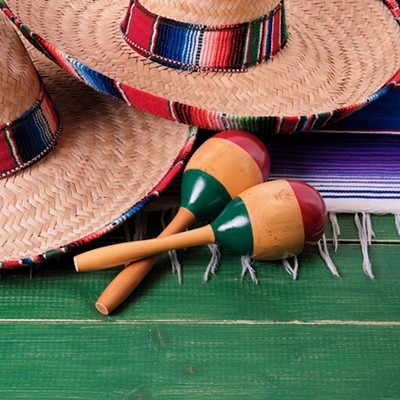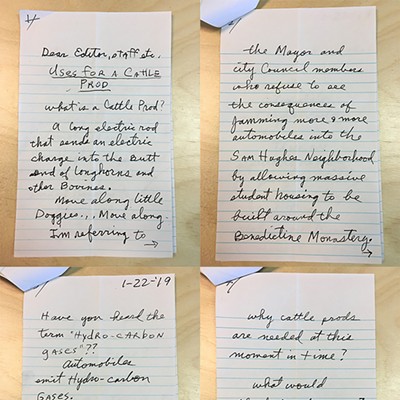Her humor is far removed from easy ethnic jokes some people believe are funny. Two generations later, her granddaughter grows uncomfortable with stereotype-dependent humor long before it becomes politically incorrect. Don't ask why; she couldn't tell you.
But I can tell you her granddaughter is also uncomfortable with the use of the first-person pronoun--go ahead, call her a dinosaur--in journalism. It's too fucking facile, just like using "shock" words, she believes, is a substitute for thoughtful writing.
(Though it is convenient to have both options, and she's been known to choose the easiest path.)
So when the granddaughter came across an Internet joke on "Italianhood," that is: "How to Recognize Your Italian Essence," she faced a dilemma. Should she let it go or write about it?
Anyone who owns a computer and accepts e-mail has probably encountered this type of joke. "You know you're (fill in the blank) when (fill in the second blank)." She has a good sense of humor and finds it easy to laugh at herself, but this collection of Italian stereotypes led her to take umbrage. Some relatives found it amusing, so maybe she was having a bad day when she read it. Maybe she was irritated because it didn't offer an opportunity to laugh at herself, but to laugh at the expense of her entire tribe. Or maybe she was annoyed because those same North Americans who are the masters of ethnic slurs and stereotypes are also the world's primo culture vultures (having wrested the title from the English).
So in order to clear the air of misconceptions that resulted in a demeaning attack (masquerading as humor) on her ethnic compatriots, here's the truth--or some of it--about growing up Italian. To be precise, Southern Italian. To be even more precise, she'd have to give up more information than most Southerners are apt to do.
Italians do not eat seven meals a day. In fact, breakfast is usually a light affair followed by a substantial lunch and a light evening meal. (Though her grandfather, who labored in one of those charming North American factories producing toxic materials for the "Century of Progress," had to make do with a lunch pail.) But whatever number of meals, none involve anything as nauseating as Krispy Kreme donuts or any number of other U.S. mainstream favorites. Of course, the degenerative diseases associated with food choices are not linked to the Mediterranean diet--especially when combined with the traditional lifestyle of the mezzogiorno.
Pasta is not eaten "at least three times a week." On the contrary, meals more often consist of legumes, leafy greens, fresh seasonal vegetables and fish. As with the Chinese, meat plays a supporting role; it's not the star attraction. Except where it is. And then there are regional differences where rice trumps pasta.
A hunk of bread held in the left hand is not a necessary accompaniment to every repast. Any Italian worth the name is appalled whenever s/he sees "the others" eat bread with pasta. But hey, what can one expect from barbarians?
Eating salad after the main course is not a requirement, merely a preference. Some Italians eat it before, some during, some after, and others not at all. And how is this different from the rest of the population?
For some reason, a most irksome "fact" is the assertion that Italians call pasta "macaroni." Indeed they do, but for good reason: It IS macaroni! Unlike most Americans, who lump all pasta together, Italians distinguish between macaroni such as ziti, penne and the dozens of other varieties unknown to all but the cognoscenti, and spaghetti. When they are eating spaghetti, it is often identified by its proper name.
Long before modest Mediterranean fare appeared in trendy food magazines, or giddy americani were ordering pannini in Tuscany--the latest "must-see" place--the Italian understanding of what constitutes good food was well established. (Incidentally, the words gli americani may be accompanied by the slightest hint of a sneer indicating that despite their money, power and arrogance, they are woefully lacking in culture, class and commonsense.)
So what is it really like being Italian? It's a never-ending opera with some parts sung sotto voce, some with forceful passion and the best parts whispered offstage. And though the scenes and scripts differ from family to family, it doesn't matter much. At heart, we're all one.






